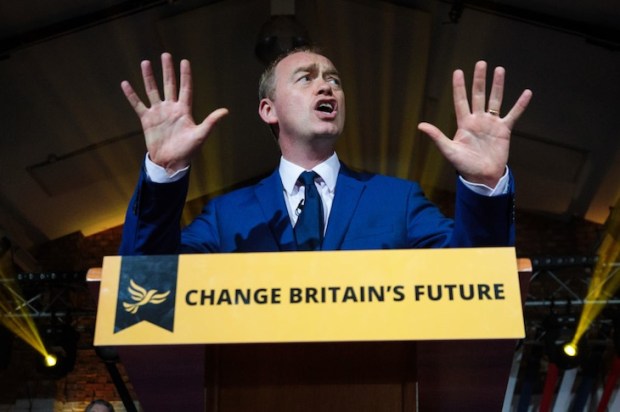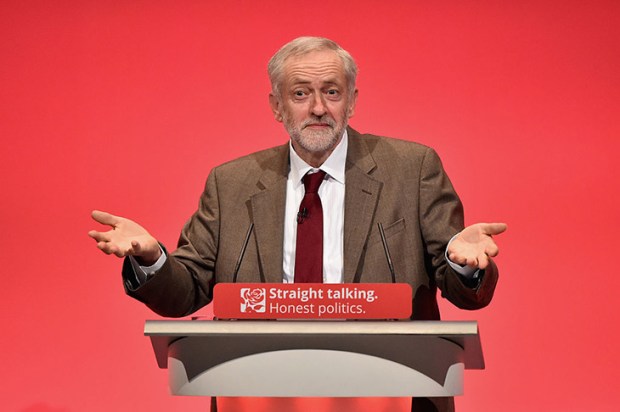The hopes of those who want Britain to stay in the EU have been dashed by this election. There has been no Brexit backlash. The party that wanted to overturn the result, the Liberal Democrats, have had a minimal impact on the campaign. By the time Britain next goes to the polls in a general election, the deed will have been done: this country will have left both the EU and the single market.
Straight after the referendum last year, some Leavers feared victory would be snatched from them. They worried that a general election could lead to a parliament that was prepared to go back on the result. Instead, this election has served to confirm that Brexit is happening. It now has the endorsement not only of a referendum, but of a general election too. There is no way for its opponents to stop it any more. Indeed, one of the most striking things about this campaign is how much the Labour and Tory Brexit positions have converged. The only matter of substance, as opposed to negotiating tactics, on which they differ is customs union membership.
Brexit has been Theresa May’s best card in this election. Whenever she has been in trouble, she has tried to steer the conversation back to it. As she sought to calm Tory nerves in her final big TV appearance of the campaign, she declared that she had called the election ‘for Brexit’. Another sign that Brexit was the Tories’ strongest issue was that none of their campaign wobbles was about withdrawal from the EU. If this had been more of a Brexit election, May would have had an easier time.
The failure of the Remain dog to bark in this election is surprising. After all, less than a year ago, 48 per cent of voters opted to stay in the EU. As Scotland showed, 40-odd per cent of the vote might not win you a referendum, but it can win you a lot of parliamentary seats under first-past-the-post: the Scottish National Party translated a 45 per cent Yes vote into victory in 56 out of 59 seats. But the 48 per cent haven’t been a political force in this election.
Nothing sums up their failure more than the plight of the Liberal Democrats. Tim Farron’s party offered themselves up as the tribunes of Remain. They promised a second referendum in which they would back staying in, but their campaign has floundered. This is because around half of the Remain vote have accepted the referendum result: they aren’t interested in fighting the last war.
And among those who still haven’t accepted Brexit, few have been prepared to change their vote; the Tories will still win easily in seats which voted heavily to Remain. By contrast, Leave voters were prepared to change their party allegiance for Brexit. Just look at how a large chunk of Ukip’s support simply shifted into the Tory column. The Labour seats that the Tories targeted were also, mainly, Leave ones.
The upshot is that Brexit’s position is stronger than it was before the election. There is now absolutely no basis for the House of Lords to hold things up; leaving both the single market and the customs union are Tory manifesto commitments.
What hasn’t been settled by this election is what kind of country Britain will be after Brexit. Theresa May has talked in this campaign, as she did in her Lancaster House speech, of a global Britain that is a champion of free trade. But there hasn’t been much meat put on the bones of this vision.
Britain isn’t staying in the single market principally because that would require accepting the continuing free movement of EU citizens and not taking back control of immigration. Quitting the single market, though, can mean many things. If Britain ends up shadowing the single market’s regulatory regime in an attempt to maintain as frictionless as possible access to it, then the impact of leaving will be limited.
If Britain were to adopt this strategy, it would not be seizing the opportunities Brexit offers. A true global Britain approach would see a shift to a lower-tax, lower-regulation model designed to encourage innovation and direct foreign investment into the UK. Outside of, for example, the Clinical Trials Directive, this country could enhance its reputation as a centre for groundbreaking medical research. There will be companies that choose to apply EU regulatory standards to ease their ability to export there. But the UK should be prepared, in time, to diverge from Europe in regulatory terms.
This divergence should be accompanied by a UK effort to argue for trade based on mutual recognition of standards, rather than harmonisation. Shifting world opinion on this question won’t be quick or easy. But there will be other countries outside the EU who would be receptive to this case.
Another issue that hasn’t been resolved by this election is immigration. The Tory manifesto again pledged to get it down to the tens of thousands. It isn’t clear, though, how this will be done. To be true to the global Britain rhetoric, the UK’s immigration policy should be designed to ensure that the best and brightest from around the world can come here. It should mean firms still have access to the European, and global, talent they need. This, ultimately, is more important than the numbers coming in.
Leaving the EU is no guarantee of success. Whether Brexit works or not will depend on how we do it. This will be the key question of the next parliament. Mrs May will present her answer to it in the coming years and months. But it won’t be the final one. One of the great advantages of Brexit is that it will allow Britain to adapt to a fast-changing world; to ensure that we seize opportunities as they arise. In this way, every election from now on will be a Brexit election.
Listen to James Forsyth and Polly Toynbee discuss the future of Brexit on the Spectator Podcast.
Got something to add? Join the discussion and comment below.
Get 10 issues for just $10
Subscribe to The Spectator Australia today for the next 10 magazine issues, plus full online access, for just $10.
You might disagree with half of it, but you’ll enjoy reading all of it. Try your first month for free, then just $2 a week for the remainder of your first year.














Comments
Don't miss out
Join the conversation with other Spectator Australia readers. Subscribe to leave a comment.
SUBSCRIBEAlready a subscriber? Log in